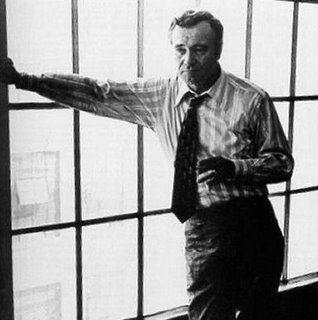The call woke me up early Satuday morning. Things had been going badly between my friend and his wife. Now he was phoning from a downtown hotel.
I cabbed over. It was a predictably sad business – I was fond of them both, and they were good parents to their kids. But the trajectory their marriage was on had been obvious for some time. There weren't any real surprises, except for the astonishing depth of heartbreak.
When I got to the hotel room, I took a chair while he tidied up a bit. We talked. I asked a few questions, and mostly listened. Room service came with a Thermos of coffee and some breakfast. The conversation had run its course, so we ate in silence. My friend turned on the TV, and flipped through the channels. One of the movie stations was showing an old Jack Lemmon picture. We stayed put, and watched a few minutes.
Those minutes stretched into the full two hours. When it was over, our mutual silence seemed to have reached a greater depth.

I don't think Save The Tiger sits on any of the “official” Great Movie lists, but today it tops mine. It isn't perfect – Harry Stoner is easily Lemmon's best performance, but he still has moments when he's projecting to the cheap seats; some of the plot contrivances are a little rough around the edges – but even the imperfections bring character to the overall work. It's an unselfconscious time capsule of the early 70s, an era when movie makers didn't mind following a person to work. In Stoner's fashion mill, ironically named after an Italian respite where he recovered from war wounds, Stoner's character is peeled back and exposed to us one layer at a time. He may slouch through most of the movie, but at work his inner steel surfaces, and we see the cunning and ferocity that kept him alive when he was a soldier.
From time to time, he mentions lost ideals, but the only nostalgia that plays convincingly is his nostalgia for big band music and baseball. Stoner isn't trying to negotiate with ideals so much as he's trying to reconnect with his pre-war state of innocence. It is an intensely lonely struggle – Stoner can't invite others to help him with it, because when he does it only magnifies the gap between two solitudes.
The film is bracketed with casualty reports, from Viet Nam, at the beginning, to the injured firemen at film's end. The film makers are sympathetic to Harry's plight, and convincingly communicate why so many business people become antagonistic toward government – it's just one more predator out there, contributing not just to their frustrations, but their demise. “Creative solutions” are a soft-headed indulgence. People are going to get hurt.
This movie is unlikely to stay my number one pick for much longer, but it still belongs there for now. Every life inflicts casualties of its own, and any story, song or movie that takes care to shine a light on the survivor's soul is a welcome work of art. Save The Tiger does, and is, exactly that.
Wow
ReplyDeleteOut of the blue.
A pleasant surprise and a choice well-connected with your life, which I think any proper Top Choice list should be! It's easy to make your choices based on the popular lists concocted by the "expert" critics; no need to put heart and soul into that, is there? And your lists never go that easy route; there's always a personal twist.
But as you've been compared to Mr. Nick Hornby (by yours truly a few years ago and by Michael B. most recently, let me finish this comment off with a piece from Mr. Hornby's Songbook.
"When it comes down to it, I suppose that I too believe that life is momentous and sad but not destructive of all hope, and maybe that makes me a self-dramatizing depressive, or maybe it makes me a happy idiot, but either way (this song/movie/book) knows how I feel and who I am, and that, in the end, is one of the consolations of art."
Keep those lists brewing, WP.
Hey Darrell,
ReplyDeleteSave the Tiger, I believe, is going to be the Saturday Night Movie on TVO this Saturday night. I thought it timely following so closely after your posting. Did you tell TVO that Save the Tiger made the top of your list?
All the best,
Faye
Yeah, it was the role where Lemmon learned to be excruciating (and by that I mean portray someone in pain so realistically it's excruciating to watch).
ReplyDeleteIn the name of synchronicity, if you've never read it, one of the funniest things ever written is Harlan Ellison's "The Three Most Important Things in Life", the second thing being tangentially related to "Save the Tiger." Enjoy: http://harlanellison.com/iwrite/mostimp.htm
Faye - I should see if I can't collect royalties from TVO after all the extra viewers drummed up for them. Thanks for the heads-up.
ReplyDeleteYahmdallah - a little Ellison always makes for welcome reading - thanks.